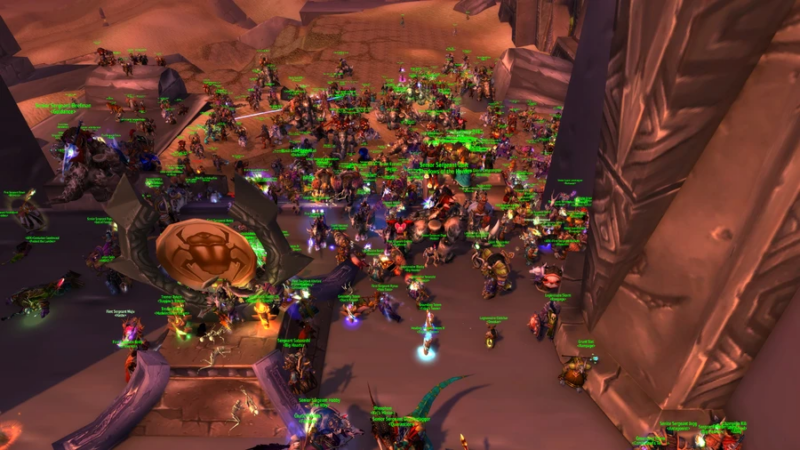
Activision Blizzard
A jury has found Activision Blizzard liable for $23.4 million in damages in a patent infringement lawsuit first brought to court in 2015.
The case centers on patents first filed by Boeing in 2000, one that describes a “distributed game environment” across a host and multiple computers and another that describes a simple method for disconnecting from such a network. Those patents were acquired in 2015 by Acceleration Bay, which accused Activision Blizzard of using infringing technology to develop World of Warcraft and at least two Call of Duty titles.
Those accusations succeeded in court earlier this week, as a jury found a “preponderance of evidence” that the patents were infringed. The decision came following a one-week trial in which Activision Blizzard argued that its networking technology works differently from what is described in the patents, as reported by Reuters.
“While we are disappointed, we believe there is a strong basis for appeal,” an Activision Blizzard spokesperson said in a statement to the press. “We have never used the patented technologies at issue in our games.”
Acceleration Bay’s website describes it as an “incubator and investor” that wants to “nurture, protect, and support the dissemination of technological advancement.” But the company’s only currently listed venture is Edge Video, a “Web 3 Video Network” that provides crypto rewards and “AI-driven shopping” opportunities through interactive video overlays.
In a 2019 counterclaim stemming from a similar patent case (which was dismissed in 2020), Epic Games argued that “Acceleration engages in no business activity other than seeking to enforce the Asserted Patents.” Epic also said at the time that “Acceleration has asserted the same six patents against other major videogame publishers, even though Epic can see no applicability of the claimed technology to the videogame industry.”
Acceleration Bay has outstanding patent cases against Electronic Arts, Take-Two, and Amazon Web Services, among others.
In 2021, Activision Blizzard won a longstanding infringement suit brought by Worlds, Inc. over a patent for a “system and method for enabling users to interact in a virtual space.” In dismissing that case, US District Judge Denise J. Casper wrote that “client-server networks, virtual worlds, avatars, or position and orientation information are not inventions of Worlds” and that its patented technology was not “inherently inventive or sufficient to ‘transform’ the claimed abstract idea into a patent-eligible application.”
